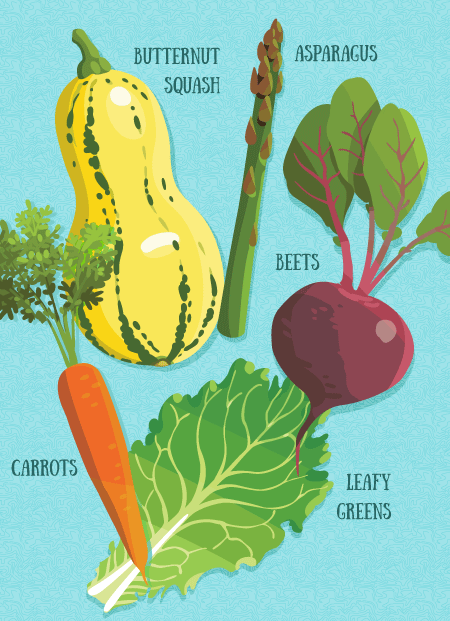What do orange skin, green poop and smelly urine have in common?
They’re not symptoms of a rare, tropical illness.
Actually, these food side effects indicate you’ve been eating a pretty healthful diet of vegetables and fruits.
Take a look at these foods that cause weird and unexpected reactions.
 Asparagus
Asparagus
What’s that rotten cabbage smell? If you’ve eaten asparagus, it’s probably your urine.
When you digest the vegetable, your body breaks down sulfur-containing compounds, and the scent is released in your urine.
Not everyone produces smelly urine after eating asparagus, and not everyone can detect the odor. Either way, it’s harmless.
Beets
If you’ve recently eaten beets, don’t be alarmed if your urine is pink or red-hued. It probably isn’t blood.
The magenta pigment in beets appears in some people’s urine. Beeturia, as it’s called, happens to 10 to 14 percent of people, and only at a certain level of stomach acidity.
Blackberries, rhubarb and carrots also are known to affect the color of urine.
Carrots
Don’t worry, no one applied self-tanner to your skin in your sleep. That orange tinge could be the result of carotenoids, natural pigments found in orange plants and vegetables like carrots and squashes.
Carotenoids are important in your diet because they’re converted to vitamin A, which helps maintain healthy skin.
Eat a lot of these veggies, though, and you could find yourself tinted orange. The condition, called carotenemia, most often occurs in kids who eat a lot of pureed carrots and other orange veggies.
A temporary orange tinge is harmless, but in rare cases, the liver isn’t able to turn carotenoids into vitamin A, resulting in a long-term orange hue and weakened immune system.
Leafy green veggies
Green stool?
The culprit could be food dye, but it’s more likely the result of leafy green vegetables that pass through your digestive system too quickly.
Butternut squash
The skin on your hands feels tight, rough and cracked, and you don’t know what caused the sudden reaction.
Have you cut up a raw butternut or acorn squash recently? Sap released when you cut up squash can irritate your skin and cause dermatitis.
Wear gloves when you’re handling raw squash, or apply cortisone cream if you’ve already experienced the reaction.






Leave a Reply